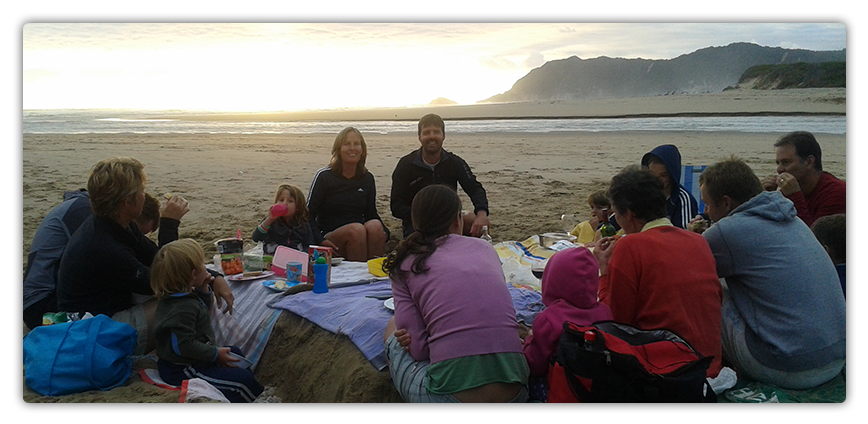From: the website of the Prader-Willi California Foundation - www.pwcf.org
Friends and extended family are in the unique position to have an immediate, positive impact on the life of the person with Prader-Willi syndrome and their family. Do not underestimate how important your support is. In a recent study comparing parents with children with a variety of disorders and disabilities, parents of children with PWS reported the highest levels of stress of any other participating parents. But that same study found that parents of children with Prader-Willi syndrome listed other family members and friends as their main supporters. Your support really matters, and there are a few rules of thumb you can follow to be the best friends and family you can be.

Friends and extended family are in the unique position to have an immediate, positive impact on the life of the person with Prader-Willi syndrome and their family.
What does this mean for extended family? It means that when an individual with PWS is visiting your home, you keep food out of sight in cupboards or in the pantry. It means that before they come over, you’ve already checked your counters to make sure there weren’t any food items out. It also means that you’ll help ensure a low-stress family holiday meal by serving food pre-portioned onto individual plates for everyone, rather than a buffet or a self-serve “family-style” dinner. It means creating helpful distractions for the child with PWS if they are struggling with holiday treats; arts and crafts activities in a separate room is one fun way to help keep the child with Prader-Willi syndrome pleasantly occupied away from food. When you, as extended family, take the time to learn about behaviors triggered by the syndrome, you enable yourself to give the parents well-needed respite when they stop by for a visit.
What does this mean for a family friend? It means that when you invite them over to your house, you don’t have food on the counter. It means that when you want to spend time together with the family, you look for food-controlled environments. Good places for this include going to the zoo, taking a stroll in a local park, or visiting a museum or historical site. When the family doesn’t have to devote their energy to preventing food-seeking behavior, they can actually relax with you. Time with you, as a family friend, keeps the fun in life and is rejuvenating for the whole family.
If you’re having someone with Prader-Willi syndrome visit your house:
- Remove all candy, mint, and nut dishes that you may typically have out.
- To the extent possible remove food from kitchen counters. Out of sight is not necessarily out of mind for the person with PWS, but it definitely helps.
- Discuss food to be served at meals/parties ahead of time with the parent/caretaker. This allows the parent to prepare by:
- Bringing an alternative for their child
- Cutting calories elsewhere in the day to allow for a treat/higher calorie meal
- Letting the child know what to expect
- Helping you chose good options for the individual
- Let your friend know what time you plan to serve meals or snacks.
- Avoid talking about food in front of the individual with PWS. For example “Who wants pie?” after Thanksgiving dinner can be very stressful. Perhaps your family member was going to leave before pie was served, or maybe they were going to allow a small piece as snack but it’s not time yet.
- Avoid eating in front of the individual with PWS if it is not also time for them to eat.
- Do not offer the individual with PWS any food or beverages without asking (away from the person with PWS) their parent/caretaker first.
- Defer questions about food to the parent/caregiver (or to the plan provided if left in your care).
- If someone with PWS is left in your care, follow their food plan exactly.
- Remember that for the individual with PWS “just one”, or “just a little bit” does hurt.
If you’re out (restaurant, amusement park, etc.) with someone who has Prader-Willi syndrome:
- Discreetly discuss when to eat if a set time has not been decided beforehand.
- Avoid eating in front of the individual with PWS if it is not also time for them to eat.
- Do not offer the individual with PWS any food or beverages without asking (away from the person with PWS) their parent/caretaker first.
- Defer questions about food to the parent/caregiver (or to the plan provided if left in your care).
- If you or your child want a treat (cookie, ice cream, etc.) find a time to do that away from the individual with PWS.
As family and family friends, you should also know the following:
Tantrum behaviour is a normal, expected phase of human development. Though other children grow out of the “terrible twos”, people with PWS generally don’t pass beyond that developmental stage, regardless of development of intellectual, language, and motor abilities. If you see tantrum behaviour, it is not because the person has been “spoiled”. However, don’t reinforce the behaviour by giving in. Maintaining a cool head and calm voice will do much to help the individual get control of their own emotions again.
Food seeking behaviour ranges in severity, but in all cases the brain acts as though it is in “starvation mode”. Their metabolism is lower, lean muscle mass is down, individuals tend to be less active, and the food drive is heightened. Maintaining a healthy weight requires both a low-calorie diet and regular physical activity. In addition, their brain doesn’t register satiety. As a result, food seeking is unrelated to hunger in the normal sense: they may food seek even if they’ve just finished Thanksgiving Dinner.
Stubbornness is a way of saying NO to changes that might cause stress or anxiousness. Many individuals with Prader-Willi syndrome display some level of cognitive rigidity, getting “caught” on one thought or concern. It is not malicious or learned – it is a part of the syndrome. Redirecting the individual who is stuck on a thought (by introducing a new conversational subject, for example) is one way to help the individual around their own rigidity.
Judgment is impaired. Learning via negative consequences does not work. For example, if you or I decided not to bring umbrella one cloudy day and were rained on, we’d remember the unpleasantness and be more likely to bring an umbrella next time it was cloudy. In the same situation, an individual with PWS may continue to leave the umbrella behind in spite of past experience. Fortunately, people with PWS do respond well to positive incentives and rewards. Your praise means the world to them.
Behaviour Tips and Social Skills for Family & Friends
Behaviour Tips
People with Prader-Willi syndrome are generally loving, sweet, kind individuals however their emotions tend to be heightened which can sometimes present problems. Additionally structure and routine are extremely important and unexpected events, no matter how small, can turn into meltdowns. Keeping the follow tips in mind will help you, your friend or family member, and most importantly, the individual with PWS.
- Speak in concrete terms; people who have PWS have difficulty with abstract terms
- Let the individual who has PWS know what to expect – what time an activity will take place, what will happen, etc.
- It’s ok to set limits on repeated questions; i.e. “I’ve already answered that question, so I will only answer it one more time”
- Keep your promises; if you say you’re going to do something, do it
- Reasoning with someone when they’re in the midst of a meltdown, will not work
- Re-directing the individual to a new or desired activity will often be successful, however there are times when you may need to just give the person time to calm down
- Allow your friend to manage a meltdown or behavioral issue in their own way; it may not be how you manage your children, but they deal with this every day and know the best way to handle their child
- If someone with PWS is left in your care be sure to follow their parents instructions for dealing with behavioral issues and stick to the schedule
Social Skills
People who have Prader-Willi syndrome typically have deficits in their ability to deal with others. They may stand too close, miss social cues, and struggle with what to say. However, if you take a little time you will be rewarded with some very delightful interactions. Children with PWS particularly struggle with peer relationships. The following tips are ways you can help:
- Allow extra time for the individual to respond; it may take them a little longer to collect their thoughts
- Keep in mind that people with PWS take things very literally; they may have problems if you use sarcasm or idioms
- Include the individual with PWS in games, outings, etc.
- Facilitate interactions with other children
- Games or structured activities work better than open play activities
- Teach your children to be patient and encourage them to play with the child who has PWS
